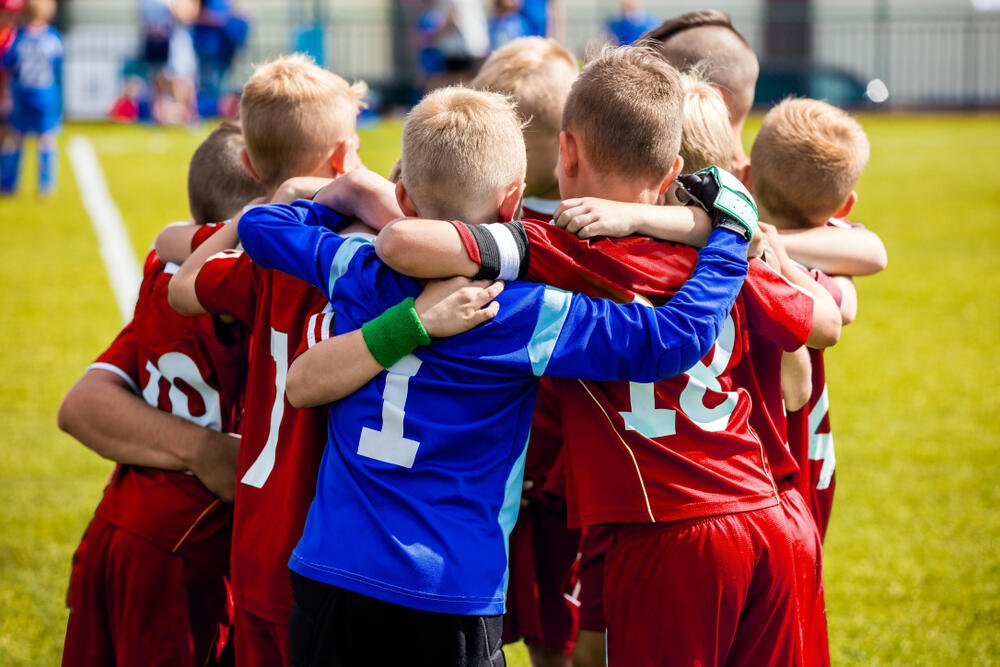Sports play a significant role in shaping individuals by promoting teamwork and leadership skills. Whether it is a school-level game or a professional league, participating in sports teaches critical life skills that extend beyond the playing field. This article explores how sports contribute to teamwork and leadership development, backed by examples, benefits, and expert insights.

The Role of Sports in Teamwork Development
1. Importance of Teamwork in Sports
Teamwork is the foundation of many sports, ensuring smooth coordination, strategy execution, and mutual trust. It enhances collaboration and allows players to work towards a common goal.
2. How Sports Build Teamwork Skills
| Skill | How It Develops Through Sports |
|---|---|
| Communication | Players must communicate strategies, positions, and plays effectively. |
| Trust | Athletes rely on teammates for success, fostering mutual trust. |
| Coordination | Smooth execution of plays requires synchronized movements. |
| Accountability | Every team member has a role, emphasizing responsibility. |
3. Examples of Teamwork in Sports
-
Football: Players coordinate their movements, pass the ball, and defend as a unit.
-
Basketball: Fast decision-making and teamwork determine a team’s offensive and defensive success.
-
Cricket: Batsmen, bowlers, and fielders work together to secure victory.
-
Volleyball: Each player has a specialized role, and teamwork is crucial for setting and spiking.
Leadership Skills Developed Through Sports
1. Importance of Leadership in Sports
Leadership is essential in sports as it helps in guiding, motivating, and strategizing for success. Leaders in sports often become role models who inspire their teams to perform better.
2. How Sports Build Leadership Skills
| Leadership Skill | How It Develops Through Sports |
| Decision-Making | Quick and strategic decisions lead teams to victory. |
| Motivation | Team captains and coaches encourage players to perform their best. |
| Problem-Solving | Leaders analyze and solve in-game challenges effectively. |
| Confidence | Successful leadership boosts confidence on and off the field. |
3. Examples of Leadership in Sports
-
Cricket Captaincy: A cricket captain decides field placements and bowling changes.
-
Basketball Point Guard: Acts as a playmaker, directing the team’s strategy.
-
Football Captain: Encourages teammates and ensures tactical execution.
Benefits of Teamwork and Leadership in Sports
1. Personal Development
-
Enhances communication and interpersonal skills
-
Builds discipline and responsibility
-
Develops emotional intelligence
2. Professional Growth
-
Prepares individuals for leadership roles in careers
-
Enhances problem-solving and strategic thinking
-
Fosters resilience and adaptability
3. Social Benefits
-
Strengthens friendships and community bonding
-
Encourages inclusivity and collaboration
-
Promotes fair play and sportsmanship
How to Foster Teamwork and Leadership in Sports
1. Encouraging Open Communication
-
Coaches should promote honest discussions among players.
-
Players should actively listen and respect teammates’ viewpoints.
2. Assigning Leadership Roles
-
Rotating captaincy allows players to develop leadership skills.
-
Providing mentorship opportunities enhances leadership growth.
3. Organizing Team-Building Activities
-
Training camps and bonding exercises strengthen team unity.
-
Role-playing leadership scenarios enhances decision-making skills.
4. Teaching Conflict Resolution
-
Players should learn to handle disagreements constructively.
-
Coaches should mediate and teach effective conflict resolution strategies.
Sports are a powerful tool for developing teamwork and leadership skills. The structured environment of sports provides lessons in communication, trust, coordination, decision-making, and motivation. By encouraging young athletes to engage in sports, we cultivate future leaders who excel in both personal and professional spheres. Whether in school, college, or professional teams, the values gained from sports remain invaluable throughout life.
Related Articles
-
Ilmkidunya 09/May/2025
The Brain-Gut Connection: How Your Stomach Affects Your Mind
-
Ilmkidunya 13/Mar/2025
10 Daily Habits for a Healthier Lifestyle - Improve Your Well-being
-
Ilmkidunya 03/Mar/2025
Understanding Sleep Cycles for Better Rest – Improve Sleep Quality
-
Mehran Ali 11/Oct/2021
Health and Hygiene
-
Hafiz Zeeshan 31/Dec/2020
Pakistani Halal Food Products
-
Ammara Ghous 09/Jul/2020
Plastic Pollution And Covid-19
-
Mehran Ali 10/Jun/2020
Bad News Pakistan Is Now The 6th Fastest Country To Add COVID-19 Cases
-
Mehran Ali 02/Apr/2020
Step By Step Guide To Corona Tiger Force Registration
-
ayesha 06/May/2018
Things Will Happen To Your Body When You Eat Two Eggs a Day
-
Farah Hedayat 28/Aug/2017
Hello Teens! Wanna try some international food? Beware, these dishes are very tempting.

.gif)









.png)

